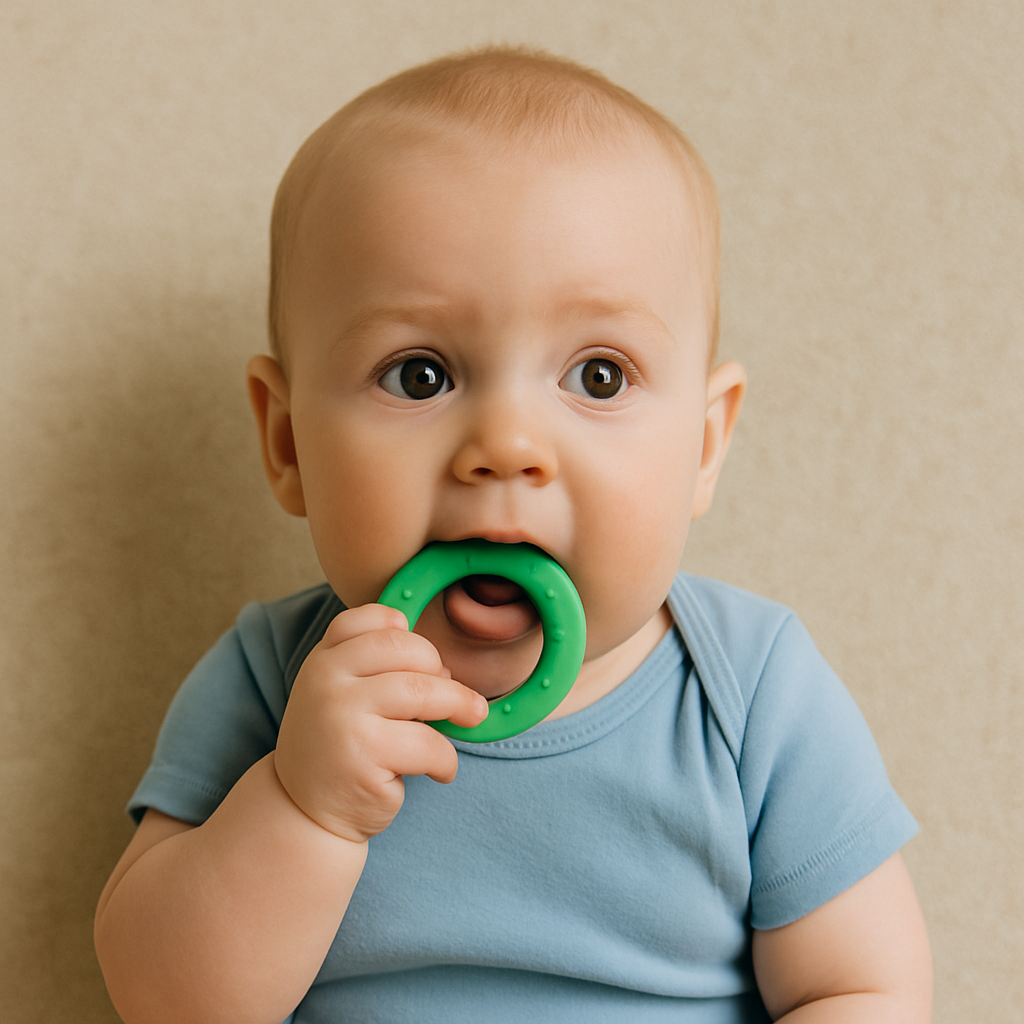One of the most common questions parents of infants have is, “when do babies start teething?” Understanding this milestone can help you prepare and support your baby through this sometimes challenging phase. Typically, babies begin teething between four to seven months of age, though it can vary widely.
Some infants show baby teething signs earlier, while others might not display any symptoms until closer to their first birthday. Recognizing teething symptoms and knowing how to soothe discomfort is crucial for keeping both you and your baby comfortable. This guide explores infant tooth development, the typical teething timeline, and provides practical tips to ease the process.
Typical Teething Timeline: What to Expect
Teething varies greatly from one baby to another, but generally follows a predictable sequence:
- 4-7 Months: Lower central incisors (bottom front teeth)
- 8-12 Months: Upper central incisors (top front teeth)
- 9-16 Months: Upper and lower lateral incisors
- 13-19 Months: First molars
- 16-23 Months: Canines
- 23-33 Months: Second molars
Common Baby Teething Signs and Symptoms
Identifying teething symptoms early helps manage your baby’s comfort. Common signs include:
- Increased drooling
- Swollen or tender gums
- Fussiness and irritability
- Chewing on objects
- Slight fever or flushed cheeks
How to Ease Your Baby’s Teething Discomfort
Teething can be uncomfortable, but several remedies can help alleviate your baby’s discomfort:
Recommended teething remedies:
- Chilled teething rings or cold washcloths
- Gentle gum massages with clean fingers
- Over-the-counter teething gels (consult your pediatrician first)
Teething remedies to avoid:
- Teething necklaces (due to choking hazards)
- Topical gels containing benzocaine
Frequently Asked Questions About Teething
Can teething cause fever?
A slight increase in temperature is normal, but a high fever (over 100.4°F/38°C) warrants medical attention.
How long does teething discomfort last?
Symptoms usually last a few days around each new tooth eruption.
What if my baby hasn’t started teething yet?
It’s normal for some babies to start later, even after their first birthday. Consult your pediatrician if concerned.
Expert Insights and Research on Infant Teething
Research indicates that while teething symptoms can be uncomfortable, they typically don’t cause severe illness. The American Academy of Pediatrics emphasizes patience and gentle soothing methods over medications unless advised by your pediatrician.
According to pediatric dentist Dr. Sarah Anderson:
“Each baby’s teething experience is unique. Knowing what to expect can make the process easier for parents and infants alike.”
Oral Care Tips for Your Baby’s First Teeth
Good oral hygiene starts early. Here’s how to care for your baby’s emerging teeth:
- Use a soft, damp cloth or infant toothbrush for cleaning.
- Avoid toothpaste until recommended by your dentist.
- Schedule your baby’s first dental check-up by their first birthday.
Need More Advice on Teething?
If you’re concerned about your baby’s teething timeline or symptoms, always consult your pediatrician. For more helpful resources, explore our guides on teething remedies, baby developmental milestones, and oral care for infants.
Final Thoughts: When Do Babies Start Teething?
In conclusion, the question “when do babies start teething” typically has a window of four to seven months, but every baby is unique. Understanding common teething symptoms, timelines, and remedies can help you confidently support your baby through this developmental milestone. Always seek professional advice if you have concerns about your baby’s oral health.




